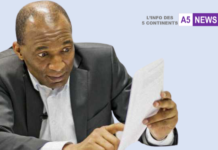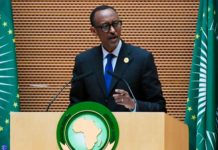Brock Pierce, an entrepreneur, humanitarian, and philanthropist with a track record of creating and investing in cutting-edge, innovative businesses and foundations, joins the 2020 US Presidential Election.
Finbold.com spoke exclusively with Mr. Pierce on various subjects like technology and specifically the blockchain. The presidential candidate highlighted the importance of using the blockchain technology to enhance financial inclusivity and why the US leadership should focus on such technologies.
Mr. Pierce also explained how the existing cryptocurrency uncertainty is making the United States lose out to other regions like Europe and Asia.
With the United States in debt, the candidate warned about the negative implications of the current situation on the dollar. He stressed on the importance of handling the debt immediately to avoid long term effects.
Furthermore, he affirmed that best on existing evidence, it is time to legalize cannabis in the United States. Pierce also talked about what the United States should do to make online voting a reality in the near future.
With the United States grappling to manage the Coronavirus pandemic and its impact, Pierce faulted the reactive nature of managing the crisis. He notes that there is a need to be proactive by having conversations with people on how to handle the fear around Covid-19.
Brock Pierce for President 2020 – the interview
By saying, “Technology should be embraced, not feared” are there any particular technologies that you would be focusing on as a President of the United States?
“Technology clearly has been changing all of our lives and all of our businesses. And with time, technology is continuing to do so even more. If we want to build a 21st-century economy, if we want to modernize our systems, I think technology is going to be essential to doing it.
Technology is a tool. It is a tool that can either enhance our lives or harm our lives based on the way we use it. Technology that we need to be paying the most attention to is blockchain technology, which has the ability to enhance our lives in a number of ways. Specifically, in the area of financial inclusivity, and ensuring everyone has equal access to the same tools, which I think is essential to any living any high quality of life.
Other technologies that are very relevant right now are artificial intelligence and how we use it, how we implement it, quantum computing and systems of this nature. It’s an area where the world is going to be changing rapidly.
We need to be paying attention to it, and our leadership needs to understand these technologies. How these technologies are used and implemented is going to have a tremendous impact on our nation’s future. We need leadership that understands these things and understands how, from a policy perspective, deal with them.
I mean, you have so many issues related to technology. From ”our tech giants” and how we interact with the facebooks and googles of the world to making sure that the things that they’re doing are ultimately serving the greater good and utilized correctly. If we want to build a 21st-century economy, it’s going to be done with 21st-century tools.”
Technology is mostly feared because people are afraid to lose their jobs to technology. How would you make sure that it does not strip away jobs from regular people?
“You know we, as human beings, fear things which we don’t understand. And the way you conquer fear is with knowledge. And I don’t think that we should be afraid of the world changing. We shouldn’t be afraid that our jobs may change. Technology should ultimately improve our collective quality of life. I enjoy what I’m doing. I live to work.
However, many people work to live, and that’s a critical nuance, incredibly important. Many people could benefit from doing things that they enjoy doing. What should happen through the use of technology is the jobs that people don’t enjoy doing should go away and be replaced with technology freeing us up to do things that we appreciate and enjoy more. And obviously, a changing landscape is going to be a little uncomfortable.
We’re going to have to develop new skills, and we’re going to have to find new jobs. Still, ultimately our lives should be improved by it; that is the underlying goal of how technology should be used. It should be used as a tool to enhance our lives.”
Specifically, how would you apply blockchain to run the US?
“There’s a lot of short and long-term implications of how this technology could be used. The internet that we use today, I often refer to as the internet of information. It’s the internet of trust. It’s providing all sorts of things, value being the thing that most people focus on first. The internet of value, but it’s much bigger than that.
At its core, what is a blockchain? It’s a system of governance. Long term, it’s a system of governance that can allow a democratic system to be more democratic, to actually implement those philosophical views, in a way where it’s ultimately serving the people as intended but more so.
From a voting perspective, there are clear implications here. You already have pilots in the United States, where this technology is being used at a local level. Long-term, the blockchain is going to allow us to solve one huge thing that has always been a holy grail of ideas – digital identity.
The internet of information allows you to copy-paste. You can take a picture, and you can copy the picture, and you can copy the picture, and you can copy the picture. You can’t have a reliable form of digital identity with that type of internet. It wasn’t designed for it. You need a tokenized system where I can’t take your digital id. Digital id, in a way where I know you are who you are. Once you’ve solved that problem, you can upgrade voting systems in two major ways.
One that makes it easier for all of us to vote by eliminating a lot of friction to allow us to vote digitally, which will increase voter engagement and greater participation in this democratic system or process. It also should eliminate all voter corruption. All voter fraud should be solvable with this technology.
From a currency perspective as well, having been one of the founders of Tether, it has been a successful experiment demonstrating that putting fiat currency on a blockchain has great utility. Tether is doing roughly 10 trillion dollars a year of transactional volume. I’d say that is proof that there is a demand for such a thing. Now there’s a bunch of issues with Tether the organization. Still, as a proof of concept, it’s demonstrated there’s a demand for this.
Governments around the world have looked at this and said okay, there is merit to this idea. Over the last three years, you have a number of governments that have been implementing pilot projects to test using blockchain technology as a way of modernizing or improving upon how their currency can be used. I think the US needs to be evaluated; the US needs to be looking at how to use technology to improve the thing it does.”
Do you think the US government should embrace existing digital assets or create its digital dollar based on blockchain?
“The underpinning or the foundation of the US economy is the US dollar. So, in the near term, there’s no reason why the US should be abandoning the US dollar. It underpins our economy; without it, we don’t have the flexibility to do the things that we’re doing.
During this time of COVID, the ability to provide stimulus and this the same thing that central banks all over the world are doing to weather these very challenging times. I don’t think that the US should be departing from that anytime soon. There may be long-term reasons that might make sense, but I don’t think so in the short term.
In terms of the US’s balance sheet, we’re very indebted. And what are the things that the US should be looking at doing and how to create greater faith and confidence or trust in its currency, I think it’s essential that the US is a large holder of gold. The US should be a large folder of land. And it’s probably not a bad idea for the US to consider owning something like bitcoin.
A minimal amount relative to its balance sheet, but as a hedge against an ever-changing environment. Governments around the world are now holding things like bitcoin as a hedge against anything that might happen in the world currency markets. And to a small extent, it’s something the US should probably look at.”
Knowing your involvement in many projects in digital asset space, how would you avoid a potential conflict of interest if your embracing of cryptocurrencies as a President could potentially bring you significant gains as a crypto pioneer?
“If I’m acting, if I end up in the office, all of my assets go into a trust—I give up sort of control over everything. And I would always make sure that I’m mitigating those risks. If you’ve ever seen me speak publicly, I am probably the most vocal person that is not acting in conflict. I’m consistently talking about how I’m a blockchain agnostic in the sense that these arguments of “my chain is better than your chain,” or “my coin is better than your coin” is an argument that I don’t support.
I believe in innovation in general. And if anyone succeeds in making the world a better place, we all win. Everything should be evaluated on its own merits. You shouldn’t be picking things and supporting things because you have a vested interest in it. I think I’ve demonstrated for an extended time that that’s how I operate. That’s why I have a long track record of being in service. And trying to move innovation forward and not consider the projects that I’m an investor in the projects I’m an advisor in the projects I made even co-founded.
I’m consistently saying, let’s support innovation in whatever form it comes. Because I don’t know where the great things are going to come from, they could come from anywhere left field right field. Let’s make sure that we continue to have an open mind and make sure that we are making the best decisions possible based on the information we have.”
Would you be looking to introduce more regulation into digital assets space?
“One of the problems we have in the United States right now is there’s a lot of regulatory uncertainty. Entrepreneurs and investors don’t like uncertainty. So, you have a lot of the best innovators in the United States who are leaving to build their businesses in Europe, Asia or Latin America.
The United States historically has been the capital of innovation. We should not be having our great innovators leaving the country. What you need to do is to create things like a regulatory sandbox to reduce the regulatory bar to allow entrepreneurs to innovate. In your first two years of operations, you don’t need to have the equivalent of a banking license to innovate at a small level. Once you’ve reached a certain level of assets or a certain level of users or whatever that may be, then it makes sense that you have these very expensive sorts of licenses to be able to operate.
What we want to do is make it easier for innovators to innovate, and right now, in the United States, it’s not easy. We lack regulatory clarity. We lack regulatory certainty, and the bar to operate is very high; we should make it easier for innovate innovators to innovate.”
“Well, I’ve never talked about creating a crypto utopia. That’s something that the press created. I decided in 2016 and 2017 to live my life in service. To see how I can be of the highest service to the greater good. And as part of that, I decided to move somewhere in the world where I could have a positive impact. And when Hurricane Maria hit Puerto Rico, I moved to Puerto Rico to see how I could assist people with getting roofs back on their homes.
I saw Puerto Rico as a place that had the potential to be in a future island of innovation, where entrepreneurship could thrive—and looking at systems like its energy grid that is old and centralized and consistently failing.
After Hurricane Maria, we had the longest blackout in the US history. It goes down every time there’s a natural disaster. And it also just goes down sometimes randomly for no reason at all.
In a place where renewable energy is well-suited, instead of shipping in fossil fuels to create energy at a very high cost more than 30 cents per kilowatt-hour, why not build a resilient solar-based power grid? The one that doesn’t go down when there’s a natural disaster or for any other reason and where you can lower the cost for consumers substantially while also providing that power on a renewable basis. So I’m not looking at Puerto Rico as a crypto anything. I’m saying how innovation can flourish and improve the quality of life of every person who lives in Puerto Rico. That’s the perspective from which I operate.
I’ve also been very involved in philanthropic causes. We secured a million-dollar donation for masks related to covid to go to Puerto Rico, neighbouring islands like the Dominican Republic and Haiti. Also, to go to places like the Navajo nation in the US and to the Amazon. We were providing food from farmers to people and families in need during this time, where no one could work.
We’ve been supporting all sorts of preservation causes from the Puerto Rican parrot to the manatees. We’re trying to do everything we can to be helpful. Again, I’m just one small man, but I feel we’ve done a lot, and a bunch of people have moved down here that are trying to see how they can be of service as well. I feel like things are going very well.”
Are there any Puerto Rico specific issues that you would address as a President of the US?
“Yes. You could argue that it’s not a state, but Puerto Rico is where the conquistadors first set up shops. So when you think about how the Americas have been populated, you know Puerto Rico was like that first state before there were states. But Puerto Rico isn’t a state. It’s not the 51st state.
I think I would, if elected, be the first president that truly cared about the well-being of Puerto Rico. And I think that it could be very beneficial to Puerto Rico. I live in Puerto Rico. I care about Puerto Rico. I understand some of the issues in Puerto Rico. And I think Puerto Rico would fare very well by having a president in office that truly cared about their needs and was willing to listen and see how I can be of service to them.”
Would you be looking to legalize cannabis at a federal level as a President of the US?
“Well, I think that debate is over. At this point, cannabis, whether used for medical reasons, spiritual reasons, or even recreation, has been proven to be less harmful than alcohol. At this point, I think the debate is over.
Cannabis should be legalized. I mean, take a look at places like Colorado that have done this. Colorado now has the best school system because of the tax revenues that it generates. I think that debate is over. And I think the answer is absolutely yes – the federal government should be legalizing cannabis.”
The US is divided more than before, do you have a plan for uniting the country?
“Black lives matter. We have a problem in this country of inequality and injustice, and we need real reform. We need to shine a light and bring these issues to the forefront so that we can actually do something about it. This is not the first time something has happened like what happened with George Floyd. This has been happening and happening and happening. We need to do something about it. We need to do something about it now.
So in terms of uniting our country, that’s a big part of why I’m running. I look around, and I see our nation is divided. I see that the left and the right are becoming further and further apart. More and more polarized. You have this us versus them, and we forget that we are us and we are them. We are in this together.
Right now, our world is changing rapidly, and we’re squabbling and fighting over things that, in the long run, are not going to matter all that much. If ever there was a moment in time for this nation to be united and for this nation to find a path forward that we can walk together, this is the time that we need to transcend politics. This is the time we need to transcend partisan politics. This is a time when we need to put aside our partisan issues and find a path forward. Our future depends on it.
I’m the father of two young girls. I am very concerned about our nation’s future and what kind of world they’re going to live in. Whether or not there will even be a world for their grandkids. We face a number of existential threats to our entire way of life. We are not focused on the real issues right now. What has served us in the past is not going to serve us in the future.”
How would you assess the current competencies of the US government in fighting the COVID-19 crisis? What would you have done differently?
“It’s a very difficult job for any president or anyone in government to have to deal with. But the crisis has happened, and we always need to do our best to respond as well as we possibly can with the information we have. I think that we didn’t respond quickly enough. There are a number of reasons and a number of parties to blame. But we could have responded earlier. We could have been better prepared. Preparedness for these types of issues is critical.
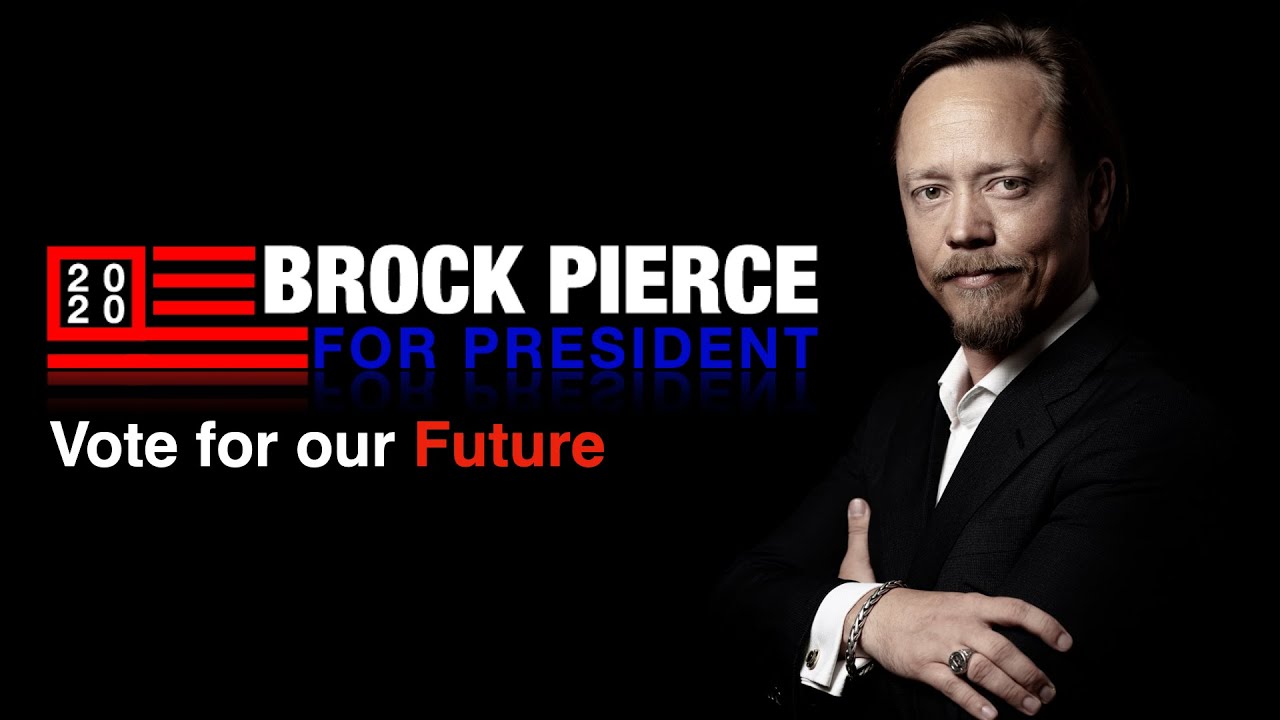
What do we do now in the current situation? We have the risk to human life. At the same time, we have an economic impact, joblessness, and everything that’s being created. So how do we ensure the safety of our citizens and the people that live here? I think one of the issues that’s not being addressed or brought up nearly enough is mental health. The mental health issues associated with this are, I think, a much bigger deal than the virus itself.
People are living in a state of fear. Fear surrounding how do I put food on my table, how do I pay my rent, my mortgage, or just my future in general. And how we address mental health issues is something that should be at the forefront of the conversation. How do we make sure that we are continually prepared to address the virus itself? And how are we addressing the economic issues and the joblessness?
These are conversations that I feel are not being had sufficiently. I feel like we’re very reactive. And we’re not proactive enough. And how are we going to deal with the next issues the next time something like this happens.”
The US is sinking in debt, do you have a plan for managing the debt?
“We basically gave a stimulus to three different constituents – the American people in the form of a $1,200 check, small businesses and big businesses. I feel we gave far too much money to big businesses. We should have given a lot more money to small businesses. Many of whom received nothing, and we should have given a lot more money to the American people who have not been able to work.
I feel that we could have done a better job of how we allocated those resources. Big businesses should be prepared for issues. Big businesses that have fiduciary duties, boards of directors, management teams and the potential to have a large balance sheet should have been prepared for a difficult time.
We know it’s not a matter of if it’s only a matter of when. And big businesses, I think, are hooked on corporate debt. America has a debt problem. It starts with the big companies being hooked on corporate debt. And making sure that they’re distributing as much cash as possible to shareholders, and they are not prepared for difficult times. We have a major systemic risk in our nation, and we need to shore up those balance sheets. Big businesses should be prepared for challenges.
Obviously, small businesses are in a very different situation. They’re trying to make something out of nothing. There’s never enough. They don’t have enough resources; they’re not prepared for these issues. Again, I’m a small business owner who is consistently creating things out of nothing, sometimes great things, I believe innovators and entrepreneurs built this nation. And I believe that innovators, dreamers and entrepreneurs are the ones that are going to fix this situation, and we need to do everything we can to support those businesses. And the American people are indebted whether it be education or school-related debt, whether it be credit card debt or buying things we often don’t need. That is a major problem in the United States.
At a government level, at a corporate level and at an individual level. If we don’t start to learn how to balance our respective budgets across all three of those parties and be prepared for challenging times ahead, we are going to have a major problem as a nation going forward, and these things need to be addressed. I think it’s mission-critical. This debt load is going to have going to create a lack of confidence in America in our currency, our ability to issue treasury bonds. And if we don’t start addressing these issues, it’s going to lead to very very real long-term problems that are going to undermine our way of life.”
Do you think voting for the presidential election online should be a thing in 2020?
“I think the answer is yes. But I don’t think it’s going to happen in 2020, 2022 or even 2024. Let’s make it easy for everyone to vote. Let’s eliminate that friction. So generation Z and the millennials, the young people can vote. We need more voter engagement, and making it easier will do that.”
Do you support universal basic income (UBI)?
“Yes. Conceptually, we know the world is changing, and we have to have systems to address the ever-changing environment. I think there’s a huge opportunity to look at our welfare systems and how we support people from food stamps to unemployment and all government programs.
A UBI type of system, which I don’t like the idea of a handout, I prefer a hand up, I prefer like what Andrew Yang talked about in terms of a freedom dividend or universal earned income that you earn this for being part of the civil process. You earn this by being an American. This is a hand up you’re earning it. I believe there’s a better semantic way to address it. If you give away that four trillion dollars a year, I need to do the math I’m working on.
Now, there are all the government programs that we have today that may add up to a very similar number. And I’d rather give the money to everyone because you know better what to do with it.
If you’re a mother of two kids, you know what you need more than the government does. I think empowering people to spend their money and meet their immediate and actual specific needs is better off. I think we have another problem right now; if you’re unemployed and you’re like, “Should I take a job? I’m going to lose my unemployment.” There’s a perverse incentive there. Versus giving everyone twelve hundred dollars a month and saying going to work is all upside. You’re giving everyone a reason to do more.
Right now, I think there’s a misalignment of incentives and the more you can correct those issues, the better off we’ll all be.”
Is America 2.0 yet?
“No. But it can be. Leadership that understands technology, we will be.”
Probably, not many people know, but you are also a magician, do you still practice magic?
“Yeah, I grew up as a magician. I was even professional for a little while during my acting days performing in Vegas on stage to large audiences. I stopped practicing that type of magic. I started practicing more real magic, which is to be an entrepreneur – to create things from nothing. Instead of illusions, I’m doing very real things that will make a real impact on all of our lives.”
Is there anything you would like to add to our viewers?
“Please visit us at Brock.vote if you’re interested in supporting us, volunteering or donating. We need all the help we can get. We are in this together. This is not about me. This is about all of us. It’s about our collective future, and that’s not even just in the United States. We are all in this together. We share one planet, and the future is going to happen to you, or the future is going to happen with you. This is the time to get involved. I truly feel this is the 11th hour. This is our defining moment as a species. We need to rise up and create the world we all want to live in. Now is the time to act.”
© Oliver Scott
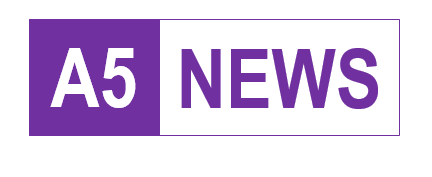



















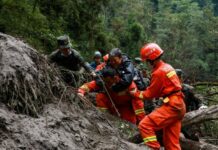


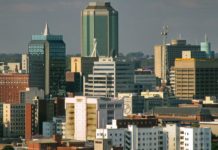


![Le chocolatier suisse Läderach développe une histoire d’amour avec la Chine [ INTERVIEW ]](https://www.afrique-54.com/wp-content/uploads/2023/12/Johannes-Laderach-et-chocolat-e1702548585357-218x150.jpg)
